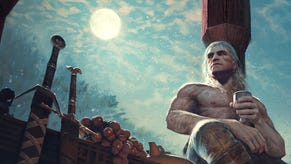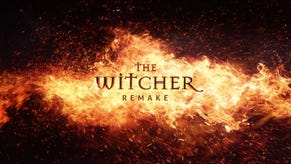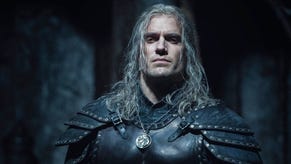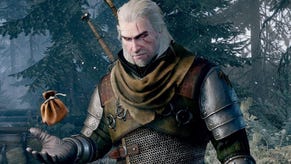DRM treats gamers like "criminals"
Witcher 2 dev CD Projekt hates it.
The Witcher 2 developer CD Projekt reckons digital rights management treats gamers like "criminals".
What's more, it's "doesn't work", according to CEO and co-founder Marcin Iwiński.
"Let's look at Call of Duty," Iwiński told Eurogamer at a press conference in Warsaw, Poland. "We are frequently checking the torrent sites before making our decisions. The game is out a few days and you have 100,000 people downloading it simultaneously. So it doesn't work.
"We could have some argumentative debate, saying, 'Yes it works, so why don't you do it?' No, it doesn't work."
CD Projekt's stance on DRM comes as no surprise – its digital shop GOG.com only sells DRM-free games.
Indeed, PC-exclusive The Witcher II will be sold DRM-free on GOG.com when it goes on sale next year.
Iwiński added: "It's a crazy thing. Gamers – legal customers – buy the game and you are limited with your ownership, while the illegal alternative has no limits. This is totally not fair and totally stupid.
"Why should I buy this legal version if it's inferior in a certain way? I'm not saying it's a problem for everybody, but for a lot of people it is. In games like The Witcher, you don't need to be connected to the internet to play. There are a lot of games like that.
"But with a lot of protections you have to be online. You have to be connected constantly or you cannot play. I know the internet is everywhere, but if you go on holiday and you have a laptop and you don't have an internet connection, it means you cannot play your games. I think it's not fair.
Piracy is clearly a big issue for CD Projekt – it's looking to get law firms to send letters threatening fines to those who pirate the game.
But its no DRM stance is not shared by all publishers.
Ubisoft in particular has come in for criticism for its perceived heavy-handed anti-piracy measures with its PC games.
Iwiński remembered the days before internet piracy, to a time just after company was established in the early Nineties.
"When you drive to our office there is a big stadium, it will be the Euro 2012 stadium. 10 years back it was the biggest flea market in central Europe. Inside you had all these folding tables. We were releasing a game, and they were mass-producing the CDs and they were charging per CD. That was our competition.
"Whatever DRM we used it didn't matter, because they were smart guys and it was about big business and big money. The offering they get at the flea market is a disc – OK, it's crappy with a print out in a strange plastic bag – but maybe we should offer them more."
The breakthrough came when CD Projekt released RPG classic Baldur's Gate as Polish publisher. It included a D&D book, five CDs (pirates were charging per CD), a map with a seal, a music CD and more.
Baldur's Gate sold 18,000 copies, up from the 3000 average. "Nobody wanted to believe us, including Virgin Interplay," Iwiński said.












